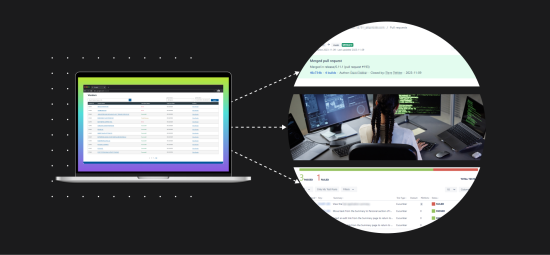Software Integration Services
Connect your silos of data into integrated systems
The ability to seamlessly integrate your systems and platforms is imperative for businesses aiming to stay competitive and agile. Integration services play a pivotal role in enabling smooth communication between disparate applications, databases, and technologies, empowering organizations to streamline operations, enhance efficiency, and accelerate innovation.
With over 25 years of experience building and software integration services, we can help you build seamless connections between nearly any system or datastore in your organization. Whether you know exactly what you need or need us to figure it out, we’ll make the journey smooth and enjoyable .
Let’s integrate your data.
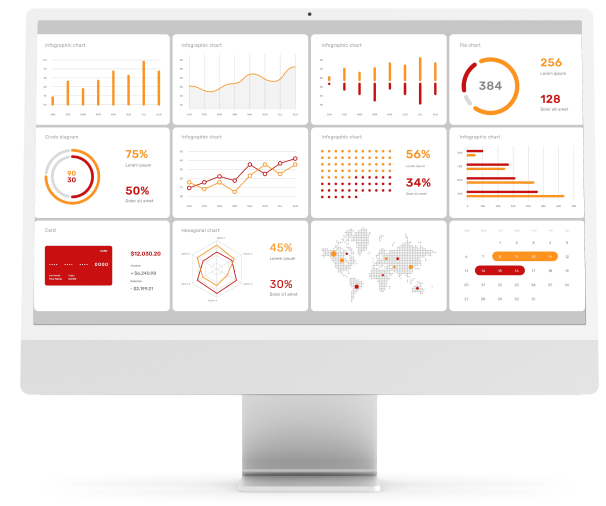

AMY WARD Director of Organizational Effectiveness at Stan JohnsonTo be honest, we had a 5-year relationship with our previous website development / maintenance vendor going into the RFP process and while we wanted to do our due diligence, we fully expected that vendor would win the RFP bid. ABT came in and really wowed us and won our business. Atlantic BT helped us to identify the most impactful enhancements, which would align with our value proposition and growth strategy.
Our custom integrations in action

Training company WordPress maintenance and support

Ecommerce Magento Website Maintenance

Real estate Drupal redesign and development
Want to see examples of all our work?
Our Team of Experts
Our team is your powerhouse of expertise, ready to support and elevate your website, whether through a complete overhaul or targeted enhancements such as software integration services. Beyond our professional excellence, we value a harmonious balance between work and creativity. Visit our About Us page to meet the team. You’ll get a glimpse of our vibrant team culture through AI-generated profile pictures that showcase our ABTers in various imaginative avatars. It’s a fun peek into how we blend generative AI technology with our passion for innovative web design.

Website Integrations Connect Your Systems Seamlessly
In today’s digital landscape, having a website is no longer enough. To truly unlock the power of your online presence, you need to leverage website integrations. Website integrations are the process of connecting different software systems and platforms to work seamlessly together, providing a cohesive and efficient user experience. Whether you’re running an e-commerce store, managing customer relationships, or automating business processes, website integrations are key to streamlining your operations and maximizing your website’s potential.
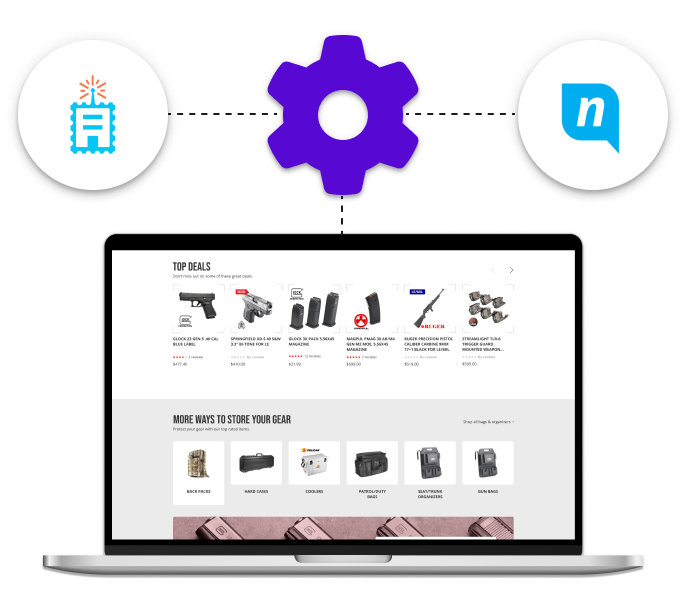
Benefits of Website and Software Integrations
Our website and software integration services offer a multitude of benefits for businesses of all sizes. Firstly, they enhance the overall user experience by enabling seamless data flow between different systems. This means that customers can have a consistent experience across multiple touchpoints, whether it’s placing an order, accessing their account information, or receiving personalized recommendations. By integrating your website with other platforms, you can also gain valuable insights into customer behavior and preferences, allowing you to tailor your offerings and marketing strategies accordingly.
Secondly, website and software integrations can help automate repetitive tasks, saving time and resources. For example, integrating your e-commerce platform with your ERP system can automate inventory management, order fulfillment, and invoicing processes. This eliminates the need for manual data entry and reduces the risk of errors, resulting in improved efficiency and cost savings. Additionally, integrations can facilitate real-time data synchronization, ensuring that your information is always up to date across different systems.
What Integration Do You Need?
Integrating business systems is key to unlocking operational efficiencies and enhancing data-driven decision-making. The detailed examples below showcase how integrating specific systems can streamline your operations, enrich customer interactions, and optimize your business strategies. While these pairings highlight common integrations, our capability extends far beyond, embracing the potential to tailor connections between any systems you use, ensuring a seamless, efficient, and fully integrated digital ecosystem tailored to your unique business needs.

CRM and E-commerce Platforms
ERP and HRMS
Marketing Automation Tools and CRM
Share leads, customer engagement data, and campaign results between systems. This enables a unified strategy where marketing efforts are informed by detailed customer insights, leading to more targeted campaigns and improved conversion rates.
CMS and E-commerce Platforms
Coordinate updates of product information and marketing content, ensuring that product descriptions, prices, and promotional materials are consistent across the online store and marketing websites, enhancing the customer shopping experience.
Financial Management Systems and ERP
Merge accounting data with operational insights, such as sales forecasts and inventory levels, enabling more accurate financial planning, budget control, and comprehensive business performance analysis.
BI Tools and CRM
Combine detailed customer data from the CRM with analytics from BI tools to generate predictive insights, enhance customer segmentation, and drive data-driven sales strategies that are responsive to evolving market trends.
Supply Chain Management Systems and ERP
Link real-time data on inventory, order status, and supplier performance from the supply chain system with the ERP to optimize production planning, improve inventory management, and ensure timely delivery to customers.
HRMS and Collaboration Tools
Integrate personnel information and project assignments to enhance team collaboration, streamline project management, and facilitate better communication, ensuring that team members have access to the relevant information and resources they need.
Exploring Detailed Integration Scenarios
The Importance Integrations for ERP Systems
ERP systems are the backbone of many businesses, providing a centralized database and automation of various processes. Integrating your website with your ERP system can have a significant impact on your operations. Firstly, it allows for seamless synchronization of data between your website and ERP system. This means that product information, inventory levels, and customer data are always up to date, providing a consistent and accurate user experience.
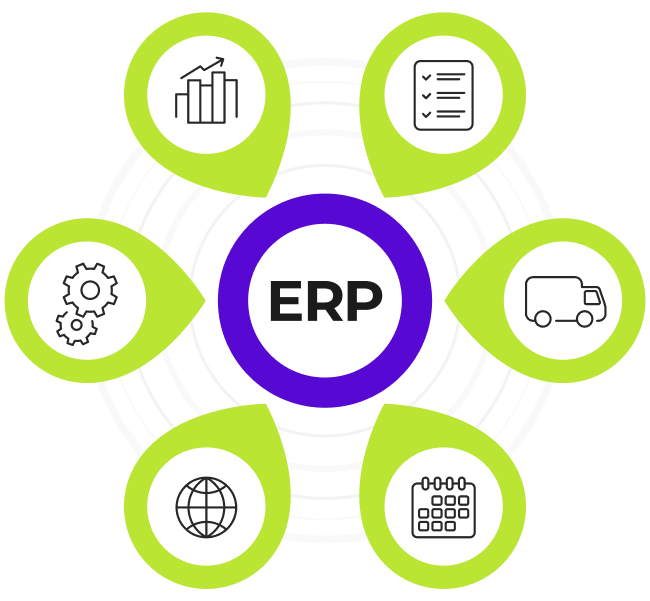
Website Integrations for Ecommerce Platforms
For e-commerce businesses, website integrations are crucial for success. Integrating your website with various platforms and systems can enhance your online store’s functionality and provide a seamless shopping experience for your customers. One of the key integrations for e-commerce platforms is with payment gateways. By integrating your website with a payment gateway, you can securely process online transactions, accept multiple payment methods, and provide a smooth checkout process for your customers.
Another important integration for e-commerce platforms is with shipping providers. By integrating your website with shipping providers, you can automate the shipping process, generate shipping labels, and provide real-time tracking information to your customers. This not only saves time and reduces errors but also enhances the overall customer experience by providing transparency and convenience.
How Integrations Can Enhance AI Capabilities
Artificial intelligence (AI) is revolutionizing many industries, and website integrations can help harness its power. By integrating your website with AI-powered systems, you can enhance personalization, recommendation engines, and customer support capabilities. For example, integrating your website with a chatbot powered by natural language processing (NLP) can provide instant support to your customers, answering their queries and guiding them through the purchasing process.
Moreover, website integrations can enable AI-powered recommendation engines that analyze customer behavior and preferences to provide personalized product suggestions. This not only improves the customer experience but also increases the likelihood of cross-selling and upselling. By leveraging AI capabilities through website integrations, you can stay ahead of the competition and provide a truly personalized and engaging online experience.
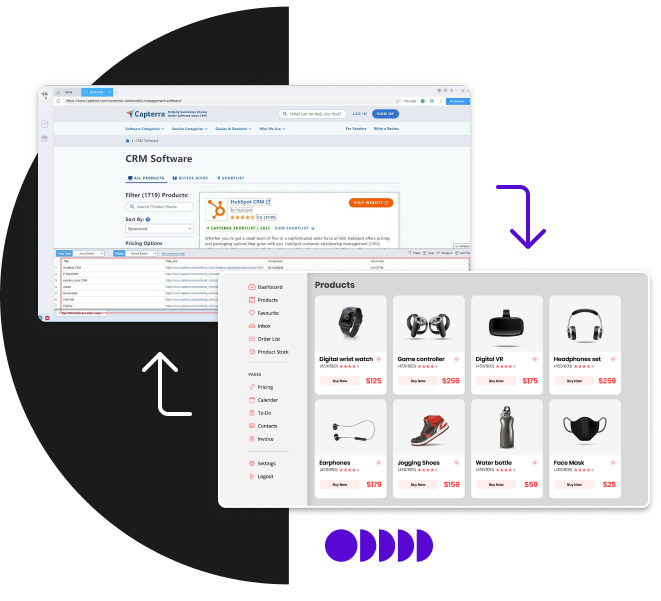
Streamlining Business Processes
Efficient business processes are essential for productivity and growth, and website integrations play a crucial role in streamlining these processes. By integrating your website with various systems, you can automate repetitive tasks, reduce manual data entry, and eliminate the risk of errors. For example, integrating your website with your CRM (Customer Relationship Management) system can automate lead generation, customer segmentation, and communication workflows. This not only saves time but also ensures that your sales and marketing efforts are targeted and effective.
Website integrations can also streamline inventory management and order fulfillment processes. By integrating your website with your inventory management system, you can automate inventory updates, track stock levels in real-time, and generate purchase orders when stock reaches a certain threshold. This eliminates the need for manual inventory management, reduces the risk of stockouts, and improves overall operational efficiency.
Understanding APIs and Their Role in Integrations
APIs play a crucial role in website integrations, as they enable different software systems to communicate and exchange data. An API acts as a bridge between two applications, allowing them to interact and share information seamlessly. APIs can be used to retrieve data from external sources, such as retrieving product information from a supplier’s database, or to send data to external systems, such as sending order information to a shipping provider.
APIs come in different types, including REST (Representational State Transfer), SOAP (Simple Object Access Protocol), and GraphQL. REST APIs are the most widely used, as they are lightweight and easy to implement. They use HTTP protocols to retrieve or send data in a format such as JSON (JavaScript Object Notation) or XML (eXtensible Markup Language). SOAP APIs, on the other hand, use XML for data exchange and are more robust but also more complex to implement. GraphQL APIs provide a flexible query language that allows clients to request specific data from a server, reducing the amount of unnecessary data transfer.
The Role of Automation in Integrations
Automation is a key component of website and software integrations and plays a vital role in improving efficiency and reducing manual labor. By automating repetitive tasks, businesses can save time, reduce costs, and allocate resources to more value-added activities. Website integrations enable automation by connecting different systems and allowing seamless data flow between them.
For example, integrating your website with your email marketing platform can automate customer communication and lead nurturing processes. When a customer completes a specific action on your website, such as making a purchase or signing up for a newsletter, the integration triggers an automated email sequence. This not only saves time but also ensures that your communication is timely, relevant, and personalized.
Summing Up
Website and software integrations are a powerful tool for businesses looking to streamline their operations, enhance their user experience, and leverage the potential of emerging technologies. Whether you’re an e-commerce store, a service provider, or a B2B company, website integrations can unlock new opportunities and drive growth. By integrating your website with other platforms, you can automate repetitive tasks, gain valuable insights into customer behavior, and provide a seamless and personalized user experience. To ensure successful website integrations, consider working with a custom developer who can tailor the software integration services to your specific needs and provide ongoing support. Unlock the power of website and software integrations and take your online presence to the next level.



